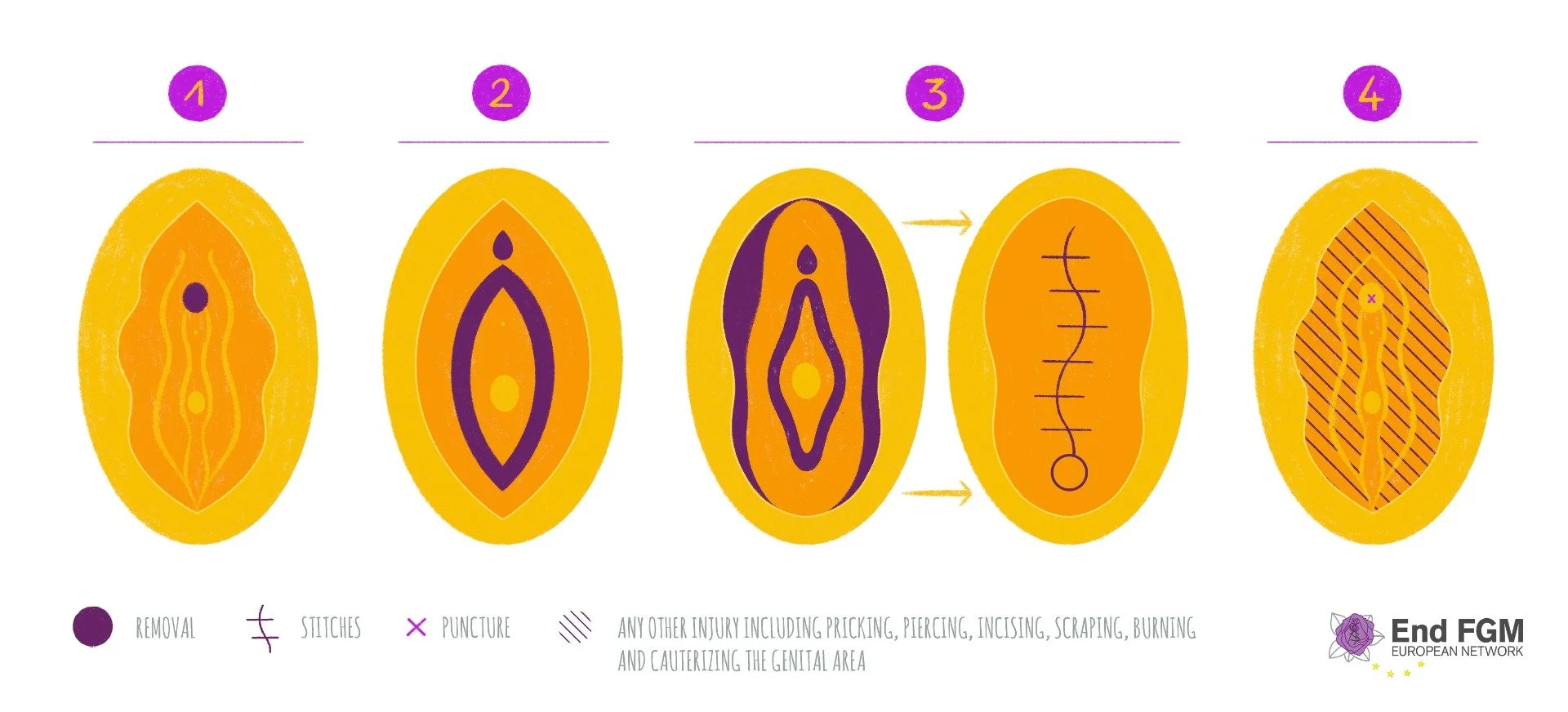Why Female Genital Mutilation should not be tolerated
Article by Joy Okereke
What is FGM?
According to the World Health Organization, Female genital mutilation (FGM) is a traditional harmful practice that involves the partial or total removal of external female genitalia or other injury to female genital organs for non-medical reasons.
Photo: endfgm.eu
“every year an estimated 3 million girls are at risk of undergoing female genital mutilation, the majority of whom are cut before they turn 15 years old. ”
Why is FGM practiced in several countries?
FGM is an expression of deeply rooted gender inequality. Traditionally and culturally most of these countries believe in psychosexual reasons where by FGM is carried out to control women sexualities, which is sometimes said to be insatiable if parts of the genitalia, especially the clitoris are not removed. It is believed to ensure virginity before marriage and fidelity afterwards as well as to increase male sexual pleasure. Some communities deem it a prerequisite for marriage and families who don’t participate face ostracism.
FGM is a human right violation and is a threat to the health of the victims
FGM violates universal human rights principles. This includes the principles of equality and non-discrimination on the basis of sex, the right to freedom from torture and cruel, inhuman or degrading treatment, the right to physical integrity, the rights of the child and in the worst cases, it even violates the right to life, to mention but a few.
There are no health benefits to this practice, the beliefs and theories haven't been proven true and accurate, meanwhile it causes serious harm to the health of the victims(girls and women) such as:
Experiencing of constant pain, including when having sex
Repeated infection, that might lead to infertility
Bleeding that can lead to death
Cyst and abscesses
Problem peeing or holding pee( incontinence).
Depression and trauma which can lead to self harm.
How can we end FGM?
Raise awareness on the harms to educate people, for example by sharing a link to this post;
Providing funds and supporting frontline activists;
Organise or join campaigns against FGM and involve community leaders and policy makers;
Involve men in the conversation of FGM.
